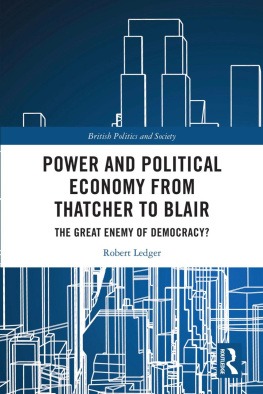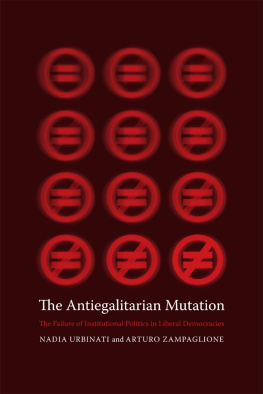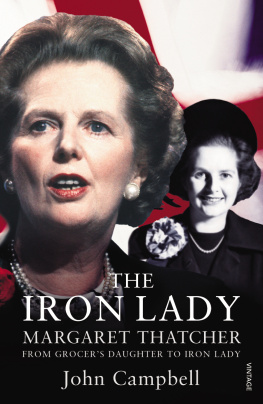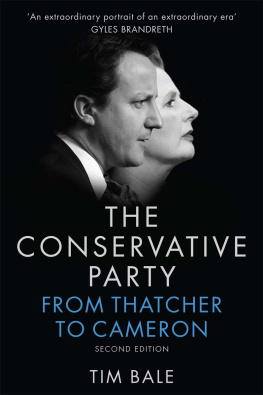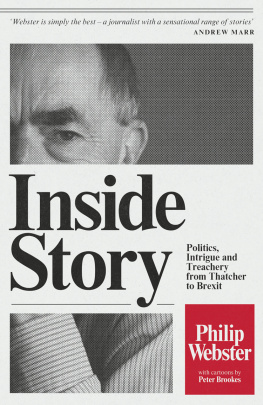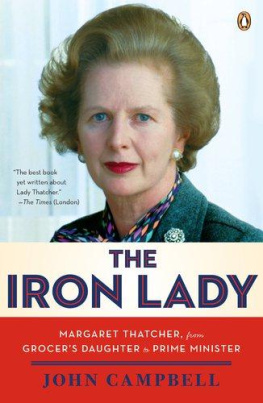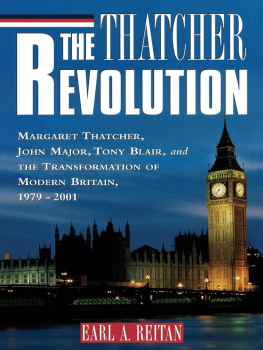Power and Political Economy from Thatcher to Blair
This book investigates the policies of the Thatcher, Major and Blair governments and their approaches towards concentration of economic and political power.
The 19792007 British governments have variously been described as liberal or, to use a political insult and a favourite academic label, neoliberal. One of the stated objectives of the Thatcher, Major and Blair governmentsalbeit with differing focal pointswas to disperse power and to empower the individual. This was also a consistent theme of the first generation of neoliberals, who saw monopolies, vested interests and concentration more generally as the great enemy of democracy. Under Thatcher and Major, Conservatives sought to liberalize the economy and spread ownership through policies like Right to Buy and privatisation. New Labour dispersed political power with its devolution agenda, granted operational independence to the Bank of England and put in place a seemingly robust antitrust framework. All governments during the 19792007 period pursued choice in public services. Yet our modern discourse characterises Britain as beset by endemic power concentration, in markets and politics. What went wrong? How did so-called neoliberal governments, which invoked liberty and empowerment, fail to disperse power and allow concentration to continue, recur or arise?
The book will be of interest to students and scholars of contemporary British history, political economy and politics, as well as specific areas of study such as Thatcherism and New Labour.
Robert Ledger has a PhD in political science from Queen Mary University of London. He currently lives and works in Frankfurt am Main, Germany. He is the author of Neoliberal Thought and Thatcherism: A Transition From Here to There?
British Politics and Society
Social change impacts not just upon voting behaviour and party identity but also the formulation of policy. But how do social changes and political developments interact? Which shapes which? Reflecting a belief that social and political structures cannot be understood either in isolation from each other or from the historical processes that form them, this series examines the forces that have shaped British society.
Inside the Welfare State
Foundations of Policy and Practice in Post-War Britain
Virginia A. Noble
British Military Intervention and the Struggle for Jordan
King Hussein, Nasser and the Middle East Crisis, 19551958
Stephen Blackwell
The Permanent Under-Secretary for Foreign Affairs, 18541946
Keith Neilson and T.G. Otte
The Western European Union
International Politics Between Alliance and Integration
Sally Rohan
Windrush (1948) and Rivers of Blood (1968)
Legacy and Assessment
Edited by Trevor Harris
Power and Political Economy from Thatcher to Blair
The Great Enemy of Democracy?
Robert Ledger
For more information about this series, please visit: https://www.routledge.com/British-Politics-and-Society/book-series/BRITPOL
Power and Political Economy from Thatcher to Blair
The Great Enemy of Democracy?
Robert Ledger
First published 2021
by Routledge
2 Park Square, Milton Park, Abingdon, Oxon OX14 4RN
and by Routledge
52 Vanderbilt Avenue, New York, NY 10017
Routledge is an imprint of the Taylor & Francis Group, an informa business
2021 Robert Ledger
The right of Robert Ledger to be identified as author of this work has been asserted by him in accordance with sections 77 and 78 of the Copyright, Designs and Patents Act 1988.
All rights reserved. No part of this book may be reprinted or reproduced or utilised in any form or by any electronic, mechanical, or other means, now known or hereafter invented, including photocopying and recording, or in any information storage or retrieval system, without permission in writing from the publishers.
Trademark notice : Product or corporate names may be trademarks or registered trademarks, and are used only for identification and explanation without intent to infringe.
British Library Cataloguing-in-Publication Data
A catalogue record for this book is available from the British Library
Library of Congress Cataloging-in-Publication Data
Names: Ledger, Robert, author.
Title: Power and political economy from Thatcher to Blair: the great enemy of democracy? / Robert Ledger.
Description: 1 Edition. | New York: Routledge, 2021. | Series: British politics and society | Includes bibliographical references and index.
Identifiers: LCCN 2020042899 (print) | LCCN 2020042900 (ebook) | ISBN 9780367857677 (hardback) | ISBN 9781003014959 (ebook)
Subjects: LCSH: Great BritainEconomic policy21st century. | NeoliberalismGreat BritainHistory20th century. | ConservatismGreat BritainHistory20th century. | Power (Social sciences)Great BritainHistory20th century. | Thatcher, MargaretInfluence. | Great BritainPolitics and government1979-1997.
Classification: LCC HC256.7 .L43 2021 (print) | LCC HC256.7 (ebook) | DDC 330.941/085dc23
LC record available at https://lccn.loc.gov/2020042899
LC ebook record available at https://lccn.loc.gov/2020042900
ISBN: 978-0-367-85767-7 (hbk)
ISBN: 978-1-003-01495-9 (ebk)
Typeset in Times
by Deanta Global Publishing Services, Chennai, India
Contents
I would like to thank a number of people who helped develop my thinking on several of this books themes: Dr. Torsten Riotte, Dr. Andreas Fahrmeir and the history seminar at Goethe University, Frankfurt am Main; the organisers of and participants at the Rethinking British Neoliberalism conference at UCL, London, in September 2017; and the staff and students at Schiller University, Heidelberg.
I would also like to thank my family for their support, and Richard Morris, Martin Longstaff and Peter Finn for their input and help over the years.
Most of all, I would like to thank my wife, Rebecca, for her enduring support and encouragement.
Concentration, of power and wealth, is one of the key issues of our times. Despite the somewhat academic framing of concentration, inequality or market power, the themes and trends they represent are at the core of recent British political history. Numerous writers, including this one, have described the economic and political paradigm in Britain since 1979 as one dominated by neoliberalism, or a resurgence of economic liberalism. Although the very notion of neoliberalism has been contested, in so far as it was a coherent set of principles or policies, the prevailing economic model was seriously shaken by the 200708 financial crisis. In the decade since, we have seen economic liberal principles attempt to reassert themselves, for instance through austerity and public spending cuts, while simultaneously being challenged by groups on the left and right seeking to overturn the status quo, often in a more collectivist direction. At the root of neoliberal thinking is a notion that its proponents have failed to adequately address. In the early years of the renewal of economic liberalism, from the 1930s, neoliberals, notably from the United States and Germany, identified concentration of power as a danger to a functioning society and a threat to both economic and political liberty. In this way, neoliberals proposed mechanisms and institutions to prevent concentration in the economic sphere, accompanied by a rather technocratic approach to politics. We saw some of these principles put into practice, albeit with significant contingencies, from the mid-1970s in Britain. The paradox of the neoliberal approach, however, was that the economy and democratic model it encouraged were singularly incapable of preventing concentration. In fact, concentration of economic and political power has soared during the so-called neoliberal era. The forces this concentration, and this approach more generally, have unleashed increasingly manifested themselves during the 2010s.

